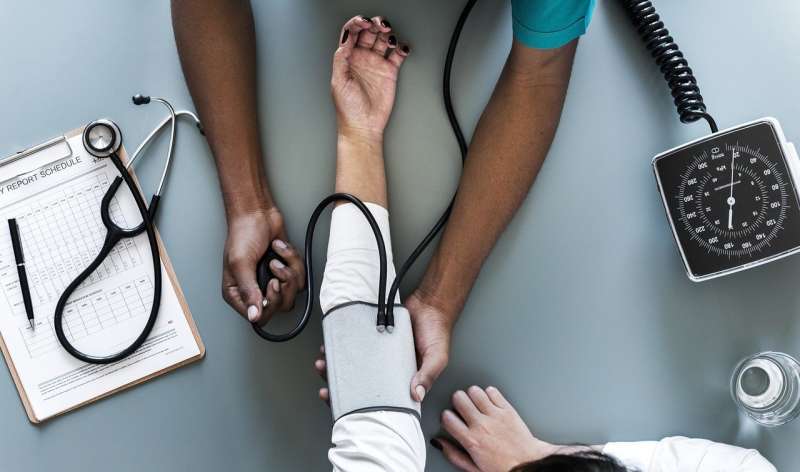Credit: CC0 Public Domain
A systematic review of published evidence suggests that hypertension treatment lowers the risk for orthostatic hypotension, or extreme drop in blood pressure upon standing. Orthostatic hypotension, before or in the setting of more intensive blood pressure (BP) treatment, should not be viewed as a reason to avoid or de-escalate treatment for hypertension. This is important as it is traditionally thought that hypertension treatment causes this condition. The findings are published in Annals of Internal Medicine and will be presented at the American Heart Association (AHA) Hypertension Scientific Sessions 2020.
Orthostatic hypotension is the change in blood pressure after someone stands up and is an important risk factor for falls, syncope, and death. It is common among adults with hypertension and is associated with multiple classes of antihypertensive medications. These associations with hypertension and its treatment have led to the widespread concern that orthostatic hypotension is a complication of intensive BP therapy.
An international team of researchers led by Beth Israel Deaconess Medical Center systematically reviewed existing hypertension trials consisting of data for 18,466 adults with hypertension, in which sitting and standing BPs were measured, to assess for orthostatic hypotension. They also looked at individual participant data from trials to determine the effect modification by demographic characteristics or related comorbidities. The data showed that lower BP targets reduced the risk regardless of age, standing hypotension status, or orthostatic hypotension prior to treatment. They found that intensive BP treatment may even improve BP regulation in adults with standing hypotension. According to the researchers, these findings are important because current AHA/ACC BP management guidelines recommend screening for orthostatic hypotension prior to hypertension treatment or in treated adults, especially older adults. Their findings suggest that neither screening nor medication adjustment is necessary before treating hypertension.
More information: https://www.acpjournals.org/doi/10.7326/M20-4298
Journal information: Annals of Internal Medicine
Provided by American College of Physicians





















